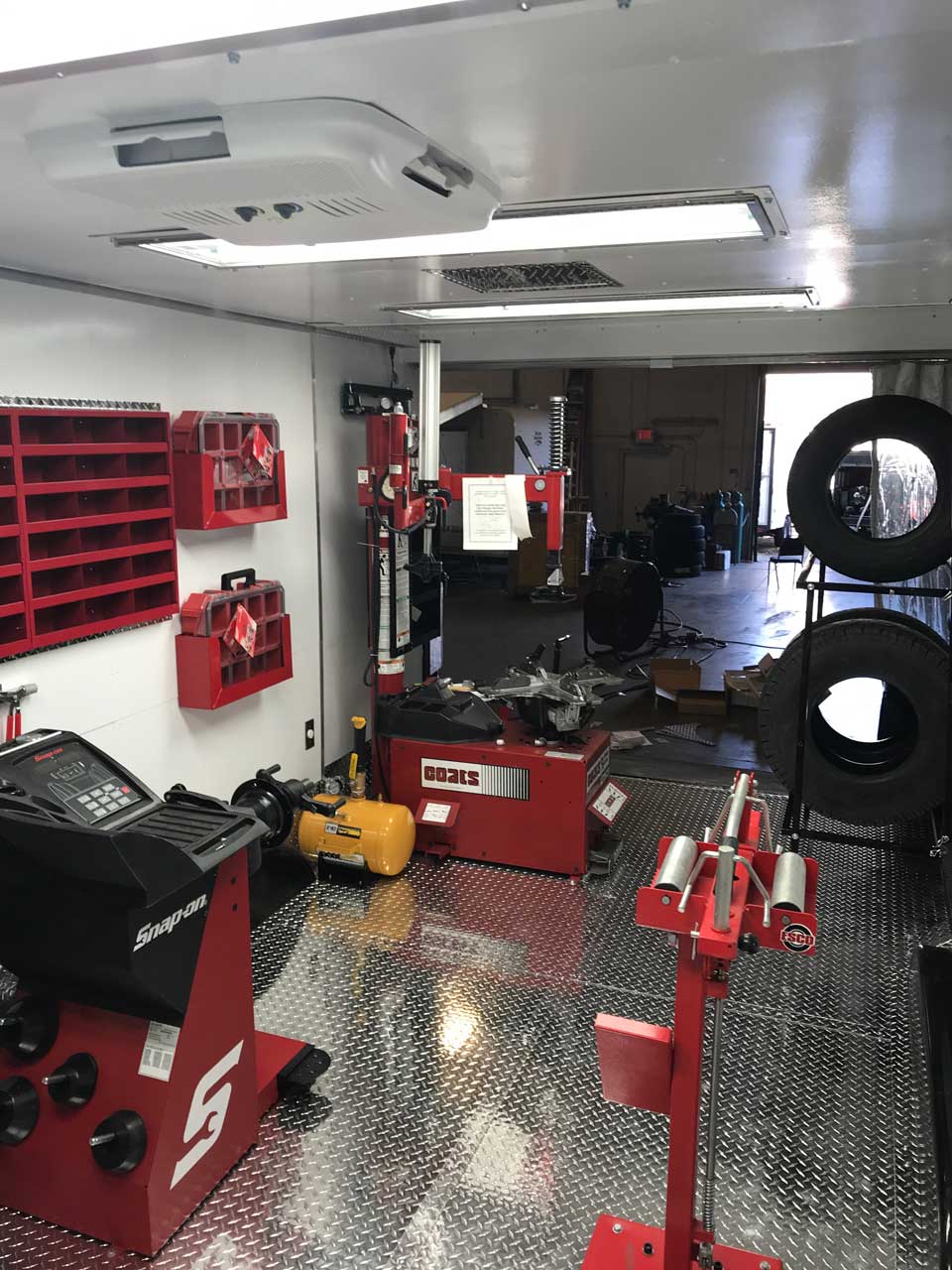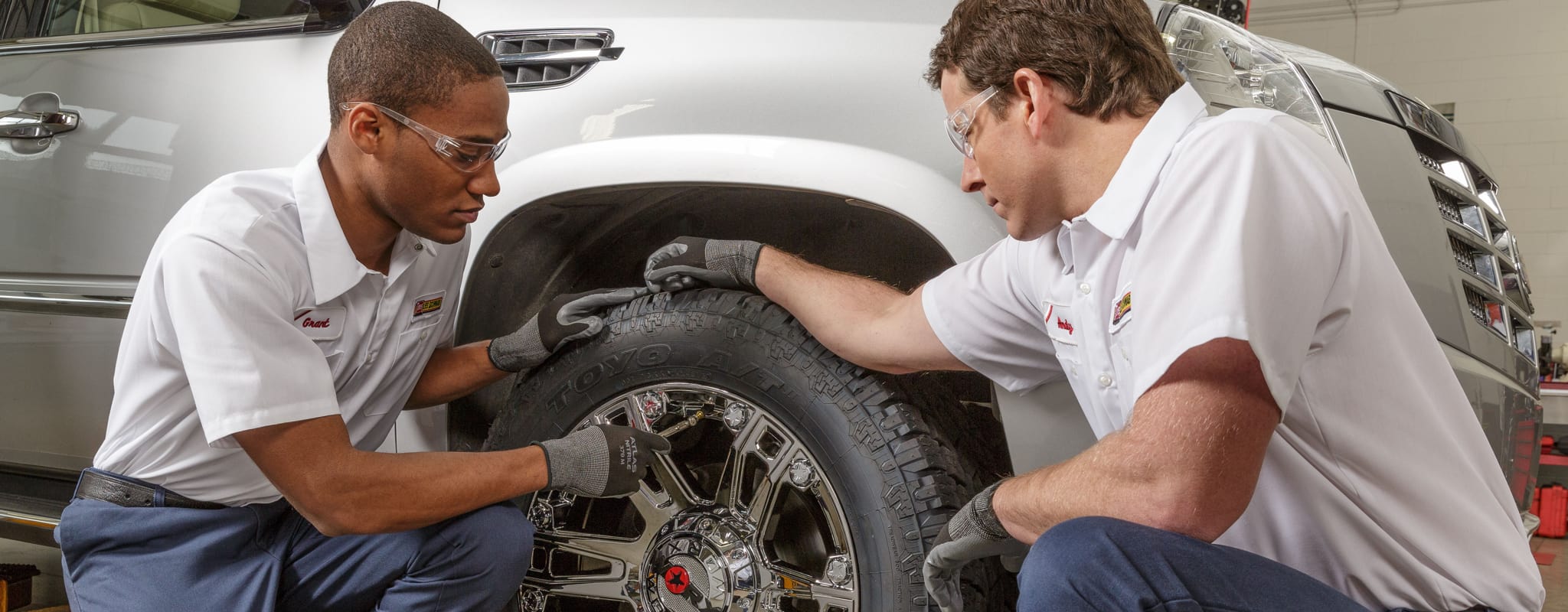Elevate Your Ride: Trust Morris Tires for GMC Tires Service
Elevate Your Ride: Trust Morris Tires for GMC Tires Service
Blog Article
Tire Solution: The Effect of Climate Condition
When it comes to guaranteeing optimal performance and security on the road, recognizing the influence of weather condition problems on tire service is important. GMC Tire Service. In this conversation, we will discover the complex partnership between weather problems and tire solution, losing light on the importance of weather-specific tire maintenance practices and factors to consider.
Heat and Tire Performance
When subjected to heats, tires experience modifications in efficiency that can significantly influence vehicle safety and handling. The warm produced from long term driving or hot climate problems creates the tire rubber to soften, resulting in reduced tread life and increased wear. As the rubber ends up being softer, the tire's grasp on the road reduces, influencing stopping ranges and general grip. In extreme situations, too much warmth can also trigger tire blowouts, presenting a serious safety and security danger to the car and its residents.

Cold Weather Effects
Cold climate conditions can have a substantial influence on tire performance and safety and security. In cool weather, tires might additionally lose air stress much more quickly, which can influence handling and fuel efficiency.
To mitigate the effects of winter on tires, it is critical to frequently examine tire pressure and inflate them to the manufacturer's recommended levels. Using wintertime or all-season tires designed for chilly weather condition conditions can also boost traction and grasp on icy or snowy roads. Correct tire maintenance, including regular evaluations for wear and damage, ends up being much more important during chillier months to make sure optimum performance and safety.
Rainy Conditions Effect
During stormy conditions, tire performance and safety can be considerably influenced by the wet road surfaces image source and lowered presence. The walk pattern of tires plays an important duty in maintaining traction on damp roadways. Tires with worn-out treads are a lot more vulnerable to hydroplaning, where a layer of water develops in between the road and the tire surface, leading to loss of grip. To battle this, drivers need to on a regular basis examine their tires for adequate tread depth and consider buying tires particularly designed for wet problems.
In addition, stormy climate can likewise lower visibility, making it challenging for drivers to see the roadway in advance clearly (GMC Tire Service). In such conditions, it is important to readjust driving speeds as necessary and maintain a risk-free following distance to permit sudden stops. Correctly inflated tires can additionally assist in maintaining control on wet roads by providing my blog much better handling and hold
Snow and Tire Safety And Security
When driving in snowy problems, having the ideal tires can make a substantial difference in safety and performance. Wintertime tires are designed with special rubber compounds and walk patterns to offer much better grip on snow and ice contrasted to all-season tires.

It is important to comply with producer instructions when making use of and mounting tire chains to avoid damages to the tires and automobile. By picking the right tires, preserving proper inflation, and thinking about additional traction help like tire chains, vehicle drivers can enhance their safety when navigating snow-covered roads.
Weather-Related Tire Upkeep
Weather-related tire upkeep includes a range of techniques aimed at guaranteeing ideal tire function and long life in different weather circumstances. One crucial aspect of weather-related tire upkeep is tire pressure regulation. Checking tire tread regularly and replacing tires when tread wear reaches a particular deepness is vital for maintaining traction and go right here security in negative climate.
Conclusion
In final thought, weather conditions have a considerable impact on tire performance and security. From warmth influencing tire stress and put on to chilly weather minimizing grip, it is important to think about the climate when preserving and making use of tires.
In this discussion, we will explore the detailed partnership between weather condition problems and tire service, shedding light on the importance of weather-specific tire upkeep practices and factors to consider.

Report this page